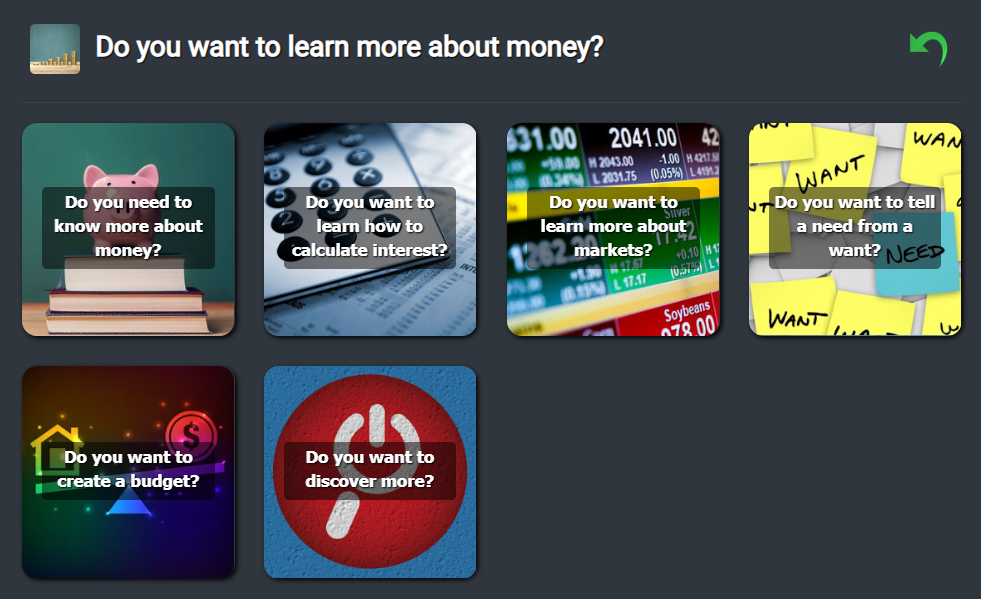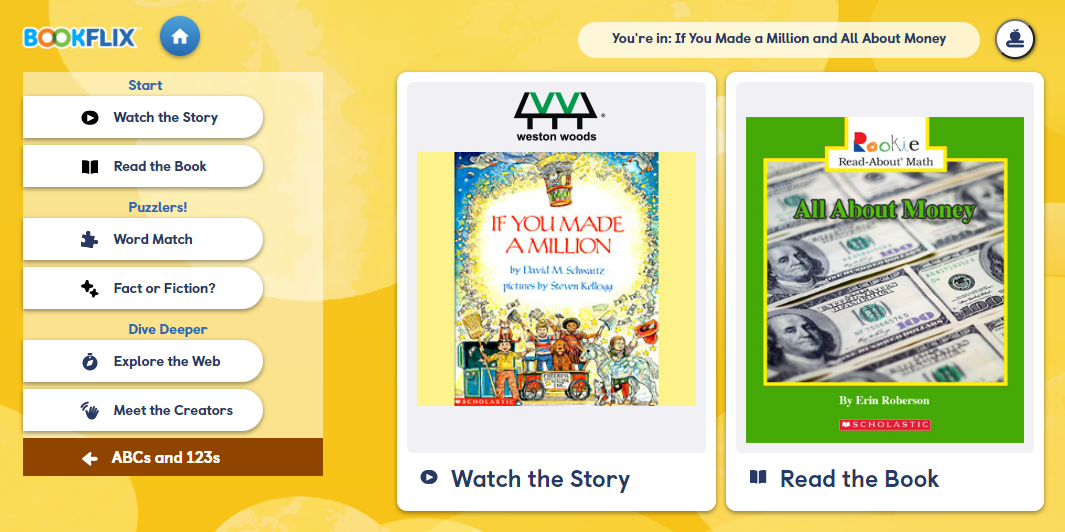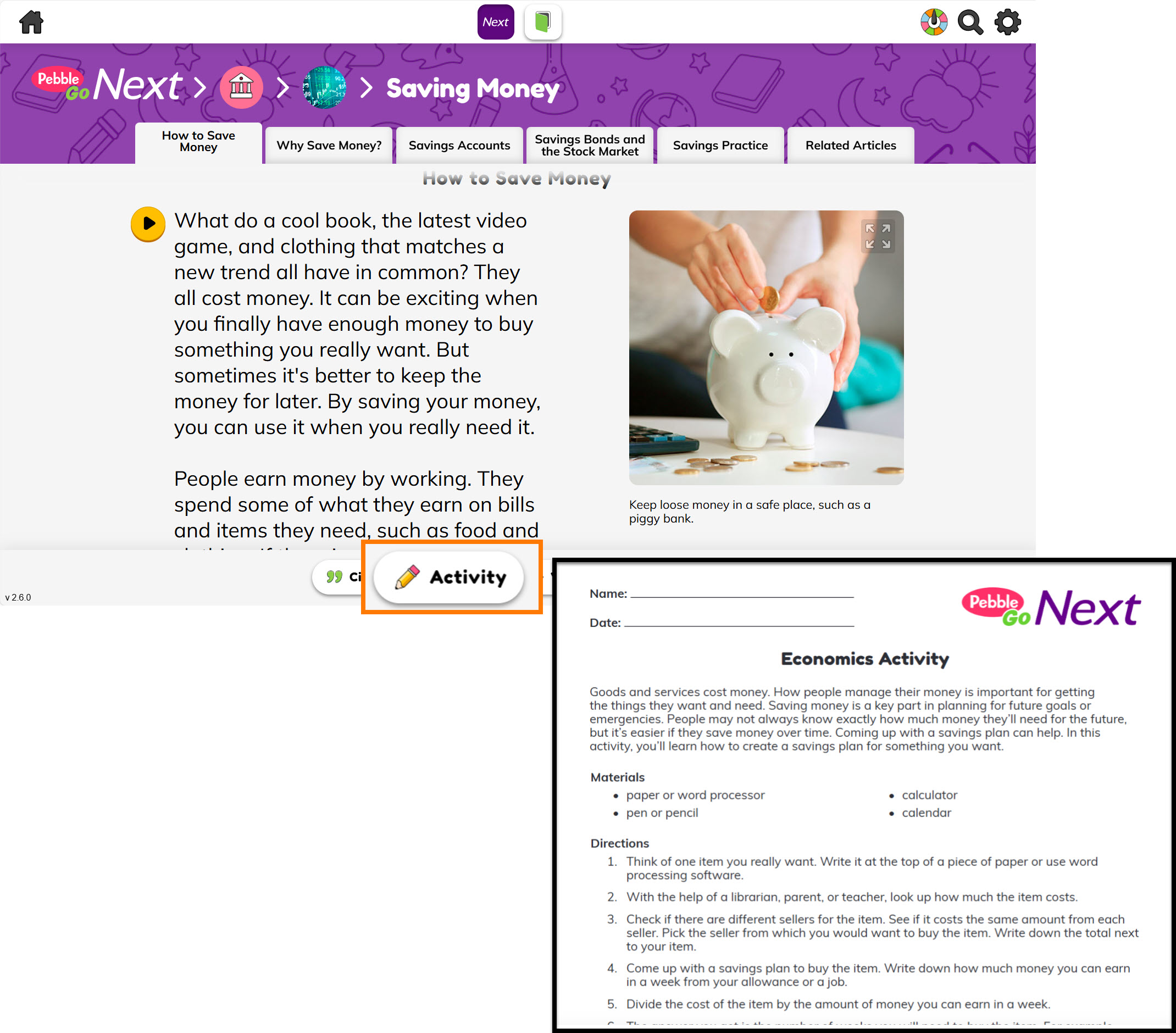Author // INFOhio Staff Friday, 22 April 2022
April is Financial Literacy Month, which is a nationwide, collaborative effort to bring awareness to topics of personal finance, including earning an income, spending and budgeting, saving, investing, understanding credit, and managing risk. Beginning the 2022-2023 school year, as stated in The Journal-News, Ohio students will need to “pass at least one half-credit course in financial literacy in order to qualify for graduation,” and public high schools “can offer a financial literacy course as either an elective or math course” (Hancock, 2021).
INFOhio has the tools and resources to help you bring money smarts to your learners, many aligned to Ohio’s Learning Standards for Financial Literacy and/or Ohio’s Learning Standards for Social Studies, including content from INFOhio’s web tools, premium licensed resources, and open educational resources. Let’s take a look at a selection of supplemental financial literacy content available through INFOhio. Note: this is intended to be just a sample of the content available for this topic as of April 2022 and may be subject to change.
Educator Tools is a repository with more than 9,500 premium instructional materials. Use the filter content area, and select Financial Literacy to find eBooks, videos, and materials about budgeting, finance, and economics. Use the filter grade level to narrow results by grade level. Click the heart to save items to a list. Share individual eBook and video titles with your students.
IWonder features age-appropriate, librarian-selected websites that support Ohio's Learning Standards and self-directed, inquiry-based learning. It is designed to help students with homework and school research. The category Do you want to learn more about money? includes resources like videos, websites, and interactive tools into topics of money, interest, stock market, needs and wants, and budgets.

INFOhio licenses premium instructional content available at no cost to all Ohio educators, students, and parents. Below is a sample of what can be found related to financial literacy on these premium resources. Each resource is linked to an information page that contains a summary, links to open and share on a learning management system, and training materials. Using these information pages or "i" pages will ensure you are correctly authenticated and can successfully access the tools.
The World Almanac for Kids Elementary
Within the “Math: Time and Money” topic of The World Almanac for Kids Elementary, there are units of learning and games for Understanding Money, U.S. Currency, and Working With Money. These simple lessons can give elementary students knowledge about how we use and count money while keeping the focus on core math concepts.
BookFlix from Scholastic pairs fiction and nonfiction text together with engaging animated videos and eBooks, related games, and additional resources on the web. Within the teacher resources area, find a lesson plan complete with book summaries, objectives, other activities to use, research, and standards alignment. Search “money” in the search bar to find a few applicable pairs for financial literacy:

From the PebbleGo Next homepage, open the Social Studies category and find Economics. Guide students in grades 3-5 as they find articles and videos to help them learn how to create a budget, earn, save, and spend money. Students can learn the basics of supply and demand, understanding credit, and the free market system. Each topic has associated activities, videos, dictionary definitions, a citation tool, and a read-aloud feature.

Financial Literacy: Saving & Investing Choice Board
Browse this collection of student eBooks and videos about saving and investing. Use these eBook and videos to teach students the best ways to earn, save, and invest money. Choose from the featured eBooks and videos and help students create a plan to make smart money choices.
INFOhio's Open Space
Find freely available materials for all subject areas in Open Space. Below is a selection of OER and OA content that can be found by searching within Open Space.
Share how you’re celebrating Financial Literacy Month by using #FinancialLiteracyMonth and #INFOhioWorks on social media. For assistance with any of our web tools and resources, contact us at support.infohio.org.
INFOhio is Ohio's PreK-12 digital library. INFOhio is optimized by the Management Council.
Fetch is avaiable to INFOhio automated schools. If you are an INFOhio school, please log in with your school username/password using the button at the top-left corner of this page.
For more information about Fetch, please visit the Fetch information page or contact INFOhio support at https://support.infohio.org.